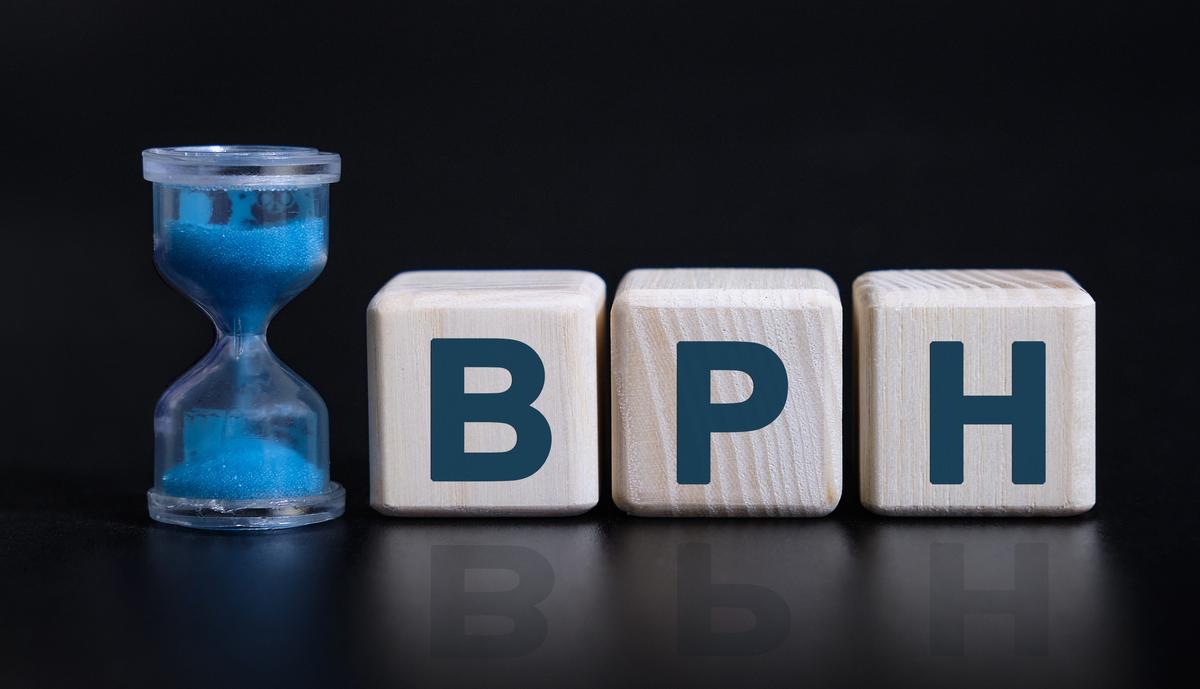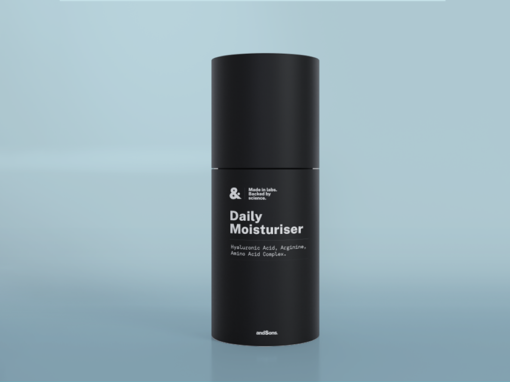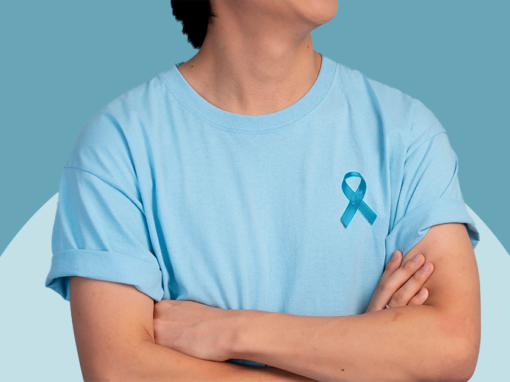If you’re an older man experiencing frequent trips to the bathroom, difficulty urinating, and a weak stream, it’s likely you have an enlarged prostate. Medically known as Benign Prostatic Hyperplasia (BPH), over 50% of men over 60 suffer from this condition.
Several symptoms are associated with an enlarged prostate, and it is important to be aware of them to seek medical help. In this article, we will discuss the common symptoms of an enlarged prostate so you can better understand the condition and its effects. Read on to learn more about BPH and its associated symptoms.
What is benign prostatic hyperplasia?
An enlarged prostate, known as Benign Prostatic Hyperplasia (BPH), is a common condition among men over 50. It occurs when the prostate enlarges, pressing on the urethra and blocking urine flow from the bladder. This can cause several uncomfortable symptoms, ranging from frequent trips to the bathroom to difficulty starting and maintaining your stream while urinating. Uncomfortable urinary symptoms, such as a bladder blockage, might be brought on by an enlarged prostate gland. It may also result in issues with the kidneys, urinary system, or bladder.
With repeated attempts to transport urine through a constricted urethra, the bladder muscle may eventually weaken. If this takes place when you urinate, your bladder cannot empty entirely. Many of the urological issues you can have with BPH are brought on by a constricted urethra and a weak bladder.
Symptoms of benign prostatic hyperplasia
The most common symptom of an enlarged prostate is a weak or interrupted urinary stream. This often leads to having to go more frequently than necessary in order to empty your bladder fully. Other symptoms may include:
• Difficulty while urinating
When you suffer from an enlarged prostate, your urethra is partly blocked by the enlarged gland. This can make it difficult to start urinating and stop and start the stream when you are in the bathroom. It can also cause a weak or slow stream that takes longer than usual to empty your bladder.
• Frequent trips to the bathroom
A sign of an enlarged prostate is the need to urinate more frequently. This is due to the pressure on your bladder and can make it difficult to control when you have to go, often leading to frequent trips to the bathroom during the day and night.
• Painful urination
If you are experiencing pain while urinating, it might be a sign of an enlarged prostate. This is usually caused by inflammation brought on by an infection in the bladder or urethra.
• Inability to empty bladder fully
When you suffer from an enlarged prostate, your bladder may not completely empty when urinating. This often leads to needing to go again even though you have just been in the bathroom.
• Premature ejaculation and other symptoms
Additional symptoms can include dribbling after urination, an urgent need to pee, premature ejaculation, and leakage due to weak bladder muscles. If you experience any of these symptoms, speaking with your doctor as soon as possible is important.
Top 5 causes of benign prostatic hyperplasia
There are many potential reasons for what causes an enlarged prostate, but the 5 most common enlarged prostate causes are:
• Hormonal imbalance
The hormone testosterone is converted to dihydrotestosterone (DHT), which can cause the growth of prostate cells. When the production of DHT increases too much, it can lead to an enlarged prostate. This usually occurs with age and can be due to a hormonal imbalance or other factors. You can look for prostate supplements and take advice from a healthcare professional before you take any.
• Infections
Prostatitis is a prostate infection that can cause swelling and enlargement of the gland. It also causes inflammation in adjacent organs, such as the bladder, leading to urinary problems.
• Obesity and genetic factors
Obesity increases your risk of getting an enlarged prostate. Fat cells produce enzymes that convert testosterone into DHT, which can make the prostate swell.
Some men are more likely to get an enlarged prostate due to their family history or genetic factors. It is important to be aware of this so you can take steps to try and prevent it from happening. Otherwise, keeping your weight in check is also important to avoid other diseases. It is imperative to follow a routine and a diet that aligns with
• Congenital abnormalities
In some cases, an enlarged prostate can be caused by a congenital abnormality in the gland size. This can cause a blockage of urine flow and lead to further bladder and urinary issues.
• Medications
Certain medications may cause enlargement of the prostate. Long-term use of certain antibiotics or anti-androgens can increase your risk for BPH.
Moreover, it is important to speak with a healthcare professional if you are experiencing any symptoms of prostate problems, as there are treatments available that can help reduce the size of the prostate and help relieve BPH symptoms. This is especially important if your enlarged prostate is causing any blockage in your urinary flow or bladder control issue.
Treatments for benign prostatic hyperplasia
Enlarged prostate treatments can range from lifestyle changes to medications and even surgery. If you are diagnosed with an enlarged prostate, your doctor may suggest some of the following BPH treatments:
• Lifestyle changes
Making small lifestyle adjustments can help relieve the symptoms of BPH. Drinking plenty of fluids, avoiding caffeine and alcohol, and exercising regularly are just a few ways to reduce the symptoms. These lifestyle changes can also help to improve overall urinary health. Moreover, you can make more lifestyle changes such as dietary changes, stress reduction and avoid sitting for long periods of time. Get into the habit of taking regular breaks during your day and making exercise a priority.
• Medications
There are several medications available that can help shrink the enlarged prostate and reduce symptoms. Alpha-blockers, 5-alpha reductase inhibitors, and anticholinergics are some of the most commonly prescribed medications for BPH. Alpha-blockers relax the muscles in the bladder neck, allowing for easier urination, while 5-alpha reductase inhibitors help shrink the size of the prostate gland.
• Surgery
In some cases, surgery may be necessary to remove part of the prostate or widen the urethra. This type of procedure often leads to an improved urinary flow and can greatly reduce enlarged prostate symptoms. You must look for a well-recognised and established healthcare professional and inquire about the risks/benefits, recovery times, and other details before undergoing surgery for an enlarged prostate.
No matter what type of treatment you choose, it is important to stay informed and work closely with your healthcare professional to ensure that the best possible outcome is achieved. With proper treatment, many associated symptoms can be relieved, and you can have improved urinary flow and bladder control.
You can even make dietary changes and consult with a healthcare professional before making any drastic changes. A proper diet helps in ensuring that you keep diseases at arm’s length and live a healthy life.
Conclusion
Enlarged prostate/ Benign Prostatic Hyperplasia (BPH), is an extremely common condition in men over the age of 50. While there are many potential causes, the most common include hormonal imbalance, infections, congenital abnormalities, medications, and obesity. If you are someone who is experiencing any of these BPH symptoms, it is important to speak with a healthcare professional immediately to discuss the best course of treatment.
Treatment options range from lifestyle changes to medications and even surgery. The type of treatment you choose will depend on your circumstances and the severity of your symptoms. With proper treatment, many associated symptoms can be relieved, and you can have improved urinary flow and bladder control.
FAQs about an enlarged prostate
1. Can an enlarged prostate be cured permanently?
An enlarged prostate cannot be cured permanently but can be managed with proper treatment. Depending on the severity of your symptoms, lifestyle changes may be enough to reduce or even stop the condition’s progression. If more aggressive treatments are needed, medications and surgery may also be considered.
2. Does medication reduce enlarged prostate?
Certain medications can help reduce the size of the prostate and relieve some of the symptoms of an enlarged prostate. Alpha-blockers, 5-alpha reductase inhibitors, and anticholinergics are some of the most commonly prescribed medications for BPH. These drugs can help shrink the prostate’s size and relax the bladder muscles to improve urine flow.
3. What foods can irritate the prostate?
Certain foods can irritate the enlarged prostate and make symptoms worse. Foods high in fat, sugar, caffeine, and alcohol should be avoided as much as possible. Spicy foods and acidic fruits such as oranges, grapefruits, and lemons can also increase irritation. Additionally, some men find that cutting out dairy products helps reduce the symptoms.
4. Can an enlarged prostate go away on its own?
In some cases, an enlarged prostate can go away without treatment. This is typically seen in men who have a mild form of BPH and may be due to changes in hormone levels or other factors.
This article is for informational purposes only and does not constitute medical advice. The information contained herein is not a substitute for and should never be relied upon for professional medical advice. Book a consultation with andSons Singapore’s medical team to learn more about prostate supplements and other well-being treatments here.


